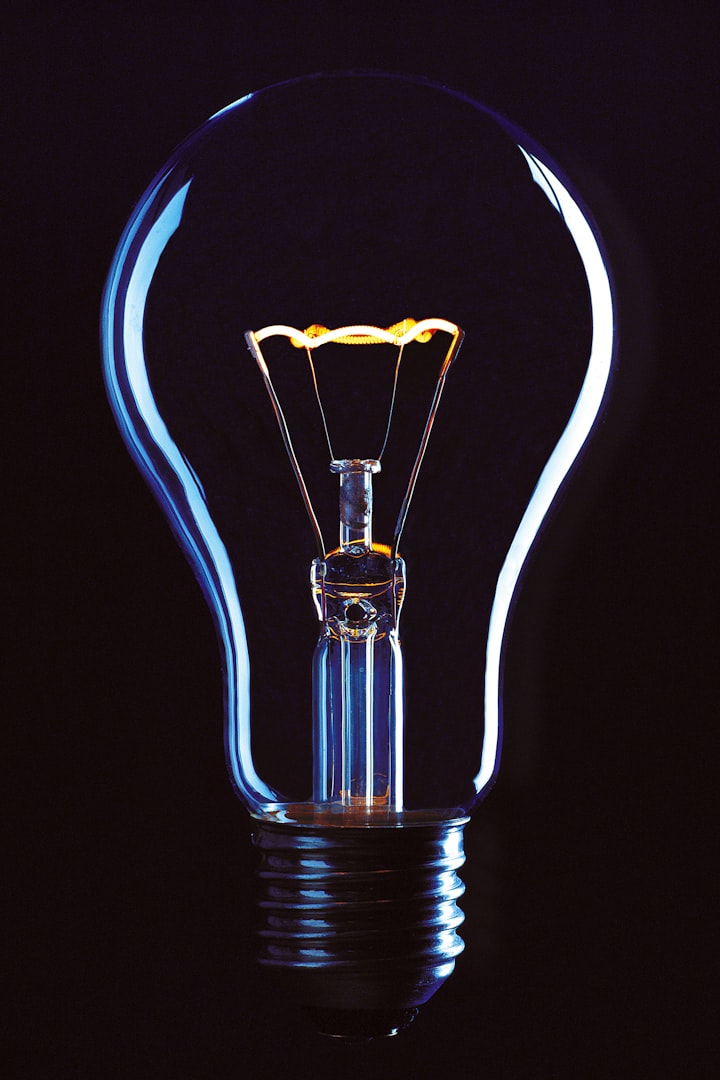Lighting the Way to a More Sustainable Future: The Benefits of Using Energy-Efficient Light Bulbs!
Save energy, save money, save the planet

Energy efficiency is becoming an increasingly important topic in our world today, as we are constantly facing the challenges of limited resources and environmental degradation. Energy efficiency refers to the ability to use energy more efficiently, by reducing the amount of energy required to achieve the same level of output. There are many reasons why we need to focus on energy efficiency, ranging from environmental concerns to economic benefits.
(CLICK HERE FOR THE BEST ENERGY-EFFICIENT PRODUCT)
One of the most important reasons to focus on energy efficiency is to reduce our impact on the environment. Our use of energy sources such as oil, gas, and coal contributes significantly to greenhouse gas emissions, which are causing climate change and its associated impacts, such as rising sea levels, more frequent and severe weather events, and threats to food security. By reducing our energy use, we can reduce our greenhouse gas emissions and slow the pace of climate change.
Another important reason to focus on energy efficiency is to conserve resources. Fossil fuels are finite resources, and they will eventually run out. By using energy more efficiently, we can reduce our reliance on these resources and extend their availability for future generations. In addition, the extraction and use of fossil fuels can have significant negative impacts on local ecosystems and communities. By reducing our energy use, we can reduce the environmental impacts of energy production.
Energy efficiency also makes good economic sense. By reducing our energy use, we can save money on energy bills and reduce our overall energy costs. In addition, energy-efficient technologies and practices can create new economic opportunities and jobs. For example, the installation of energy-efficient appliances and systems can create jobs in manufacturing, installation, and maintenance. Energy-efficient buildings can also create new jobs in design and construction.
Finally, energy efficiency can improve our overall quality of life. By reducing our energy use, we can reduce our exposure to air pollution, which can have negative impacts on our health. In addition, energy-efficient buildings can provide more comfortable and healthier living and working environments, with better air quality and temperature control.
In conclusion, energy efficiency is a critical issue that affects us all, and there are many reasons why we need to focus on it. By reducing our energy use, we can protect the environment, conserve resources, save money, create new economic opportunities, and improve our quality of life. There are many simple steps we can take to improve our energy efficiency, from turning off lights and appliances when not in use to investing in energy-efficient technologies and building practices. By working together to prioritize energy efficiency, we can build a more sustainable and prosperous future for ourselves and future generations.
Improving energy efficiency doesn't always require significant changes or investments in expensive equipment. In fact, there are many simple and affordable steps you can take to improve energy efficiency in your daily life. Here are some tips on how you can do energy efficiency by yourself:
Use energy-efficient light bulbs: Replacing traditional incandescent bulbs with energy-efficient LED bulbs can significantly reduce your energy consumption, as they use up to 75% less energy and last up to 25 times longer.
(CLICK HERE FOR THE BEST ENERGY-EFFICIENT PRODUCT)
Turn off lights and appliances when not in use: Turning off lights and appliances when not in use is one of the easiest ways to save energy. This can be as simple as turning off lights when you leave a room or unplugging appliances when they're not in use.
Adjust your thermostat: Adjusting your thermostat can help reduce your energy consumption. During the summer, set your thermostat to a higher temperature when you're not at home, and during the winter, set it to a lower temperature.
Seal air leaks: Sealing air leaks around doors and windows can prevent drafts and reduce the amount of energy required to heat or cool your home.
Use energy-efficient appliances: Energy-efficient appliances can significantly reduce your energy consumption. Look for appliances with an Energy Star rating, which indicates that they meet strict energy efficiency standards.
Use natural light: Use natural light whenever possible, as it's free and doesn't require any energy. Open your curtains or blinds during the day to let in natural light.
Reduce water usage: Conserving water can also help save energy, as it takes a significant amount of energy to treat and transport water. Take shorter showers, fix leaky faucets, and install low-flow showerheads and toilets to reduce water consumption.
These are just a few examples of how you can improve energy efficiency in your daily life. By making small changes and adopting more energy-efficient habits, you can reduce your energy consumption, save money on your energy bills, and contribute to a more sustainable future.





Comments
There are no comments for this story
Be the first to respond and start the conversation.